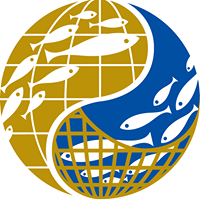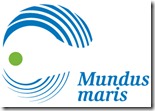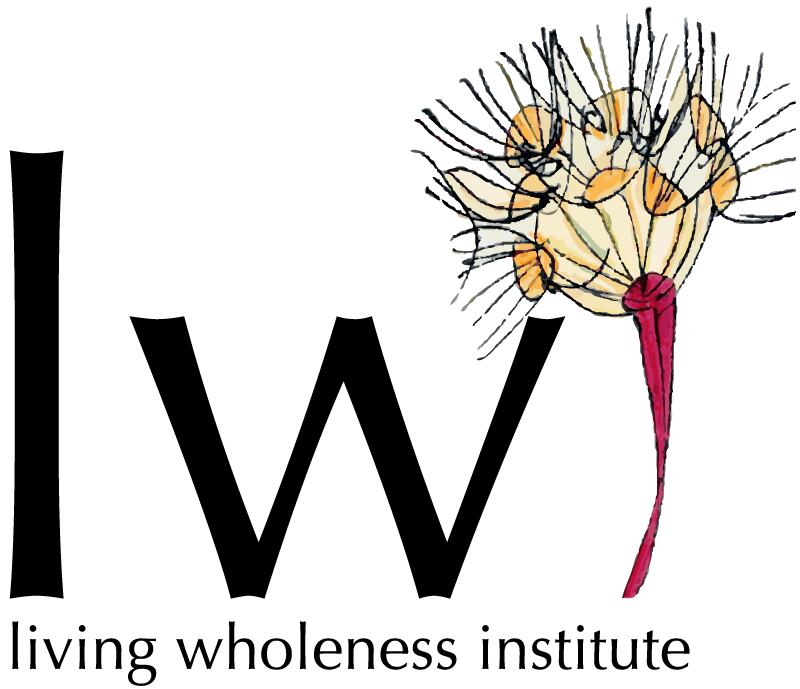Spaceship Earth - Meeting the challenges for living on the Blue Planet under siege
A Peter Wall Institute for Advanced Studies International Roundtable, 5 to 9 May 2014
"We need new narratives that connect with peoples’ deepest motivations and promote more radical action. Stories engage people at every level - not just in their minds but in their emotions, values and imaginations, which are the drivers of real change. So if we want to transform society, we must learn to tell - and listen to - a new set of stories about the world we want to create.” Simon Hodges, Storyteller
We're changing our Planet in significant ways by failing to live sustainably, consuming resources and altering the Earth beyond its regenerative capabilities. How do we live within the boundaries of our Blue Planet? This can be accomplished, but it will require a new way of thinking and the joining of very different skills and perspectives. More than anything else, looking to the future, we need to consider different ways of doing and being.
Urgent!
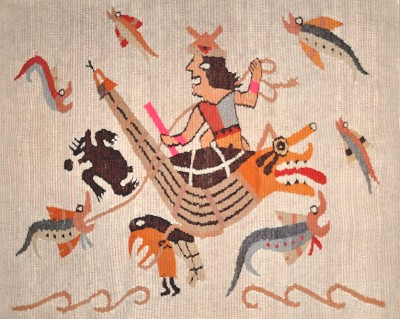 Oceans are a vital life source for the planet, covering close to 70% of the earth’s surface. The collective disregard to our own natural environment has taken heavy tolls on the living conditions and survival of all species, including humans – and we are unprepared for the catastrophic impacts that our economies and ecologies are facing both now, and into the future.
Oceans are a vital life source for the planet, covering close to 70% of the earth’s surface. The collective disregard to our own natural environment has taken heavy tolls on the living conditions and survival of all species, including humans – and we are unprepared for the catastrophic impacts that our economies and ecologies are facing both now, and into the future.
Degradation is occurring faster than expected – so states the 2013 International Programme on the State of the Ocean (IPSO). Scientific research typically assesses the impacts of oceanic degradation in decades and centuries, yet we have reached a critical point where some impacts can be seen already in terms of months and years. The changes that our entire Earth system is currently experiencing are rapid and profound. Although we cannot predict the future accurately, we need to act now, as stewards of life on this planet.
Science or technological innovation can only go so far. It is time to take a fundamentally new approach.
A Unique Roundtable:
Spaceship Earth – Meeting challenges of living on the Blue Planet under siege is a roundtable to be convened by the Peter Wall Institute at UBC, Vancouver from May 5th to 9th, 2014. It is an outstanding, unique and creative dialogue space between top scholars, artists, scientists, educators, First Nations leaders, practitioners, policy-makers, citizens and the oceans.
Blending science, arts, diverse disciplines, cultures and practices, the Roundtable aims to create the conditions to discover rich trajectories to our individual and collective sustainability in relation to maritime and coastal sub-systems. We are taking a participatory approach to create the conditions for new collective intelligence and new storylines to emerge.
- What are the new stories?
- Where does the greatest potential lie?
- How do the oceans want to participate in our collective future?
The Roundtable will be hosted in Vancouver at the Peter Wall Institute for Advanced Studies at the University of British Columbia. The site itself invites us to engage with a unique bioregion, which includes the wild coastal ecology, the institutional vibrancy of the university, and the local cultural heritage in a local and global context of dialogue and discovery.
Vision, Goals & Outcomes
The ultimate goal of this interdisciplinary roundtable is to identify actions and outcomes that reflect new trans-disciplinary research questions, and leverage opportunities for evolving our practices.
Our oceans are facing "unimaginable" changes as a consequence of acidification, fisheries collapse, sea level rise, and the ongoing pan-oceanic pollution disasters by oil, plastic and nuclear industries. The roundtable will highlight positive messaging and collective wisdom to enhance public awareness and grassroots action for ocean global health.
For the long-term agenda, we will generate new questions and collaborations. Offer a framework for leaders and practitioners, researcher and artists to continue blending their respective fields of enquiry with more experimental practices in sustainability.
We look to inspire life-long learning by making the science readily accessible to teachers, students and other non-specialist publics by facilitating imaginative and high-impact teaching and practice in relation to community action and school curricula.
Our highly original, participatory programme is designed to incite creative and resonant collaborations and strengthen existing ones between scientists, artists and practitioners for social change in critically engaged science and practice. Our outcomes will serve as a mosaic platform for innovative cooperation and critical engagement with citizens worldwide.
Join our Public Conversation!
On May 8, 2014 we are inviting the wider university and sustainability community into the conversation, complete with art performance and interactive dialogue. This session will share critical insights of the workshop with a broader audience at the University of British Columbia (UBC) and beyond, and seek to inspire innovative, creative approaches to sustainability challenges among attendees.
We are grateful of the support of the Peter Wall Institute for Advanced Studies and invite everyone joining the roundtable to share their diverse cultural perspectives, disciplinary views, societal expectations and gender filters. We trust that those joining will be rewarded with inspiring novel insights, knowledge and collaborative opportunities for action.
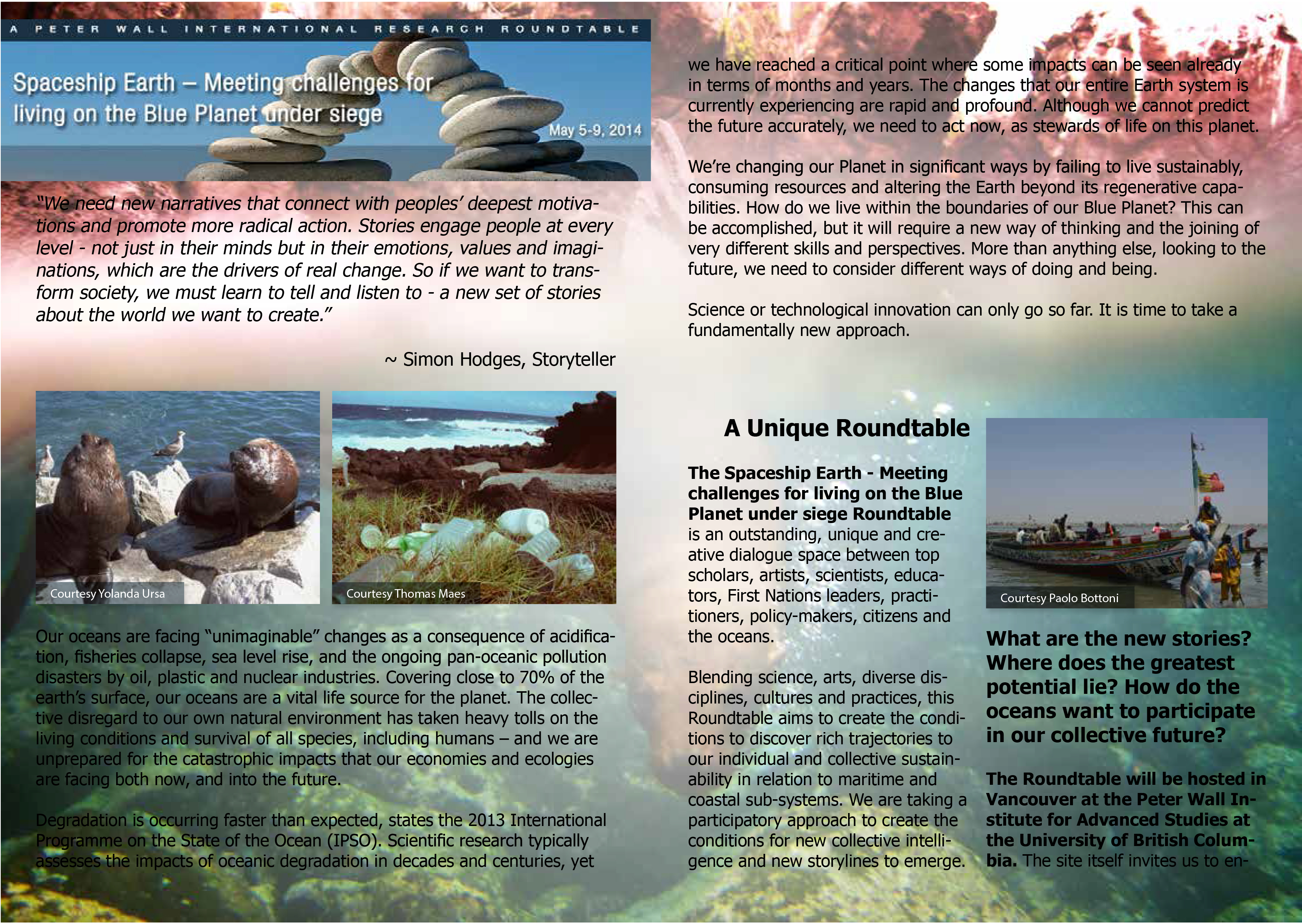
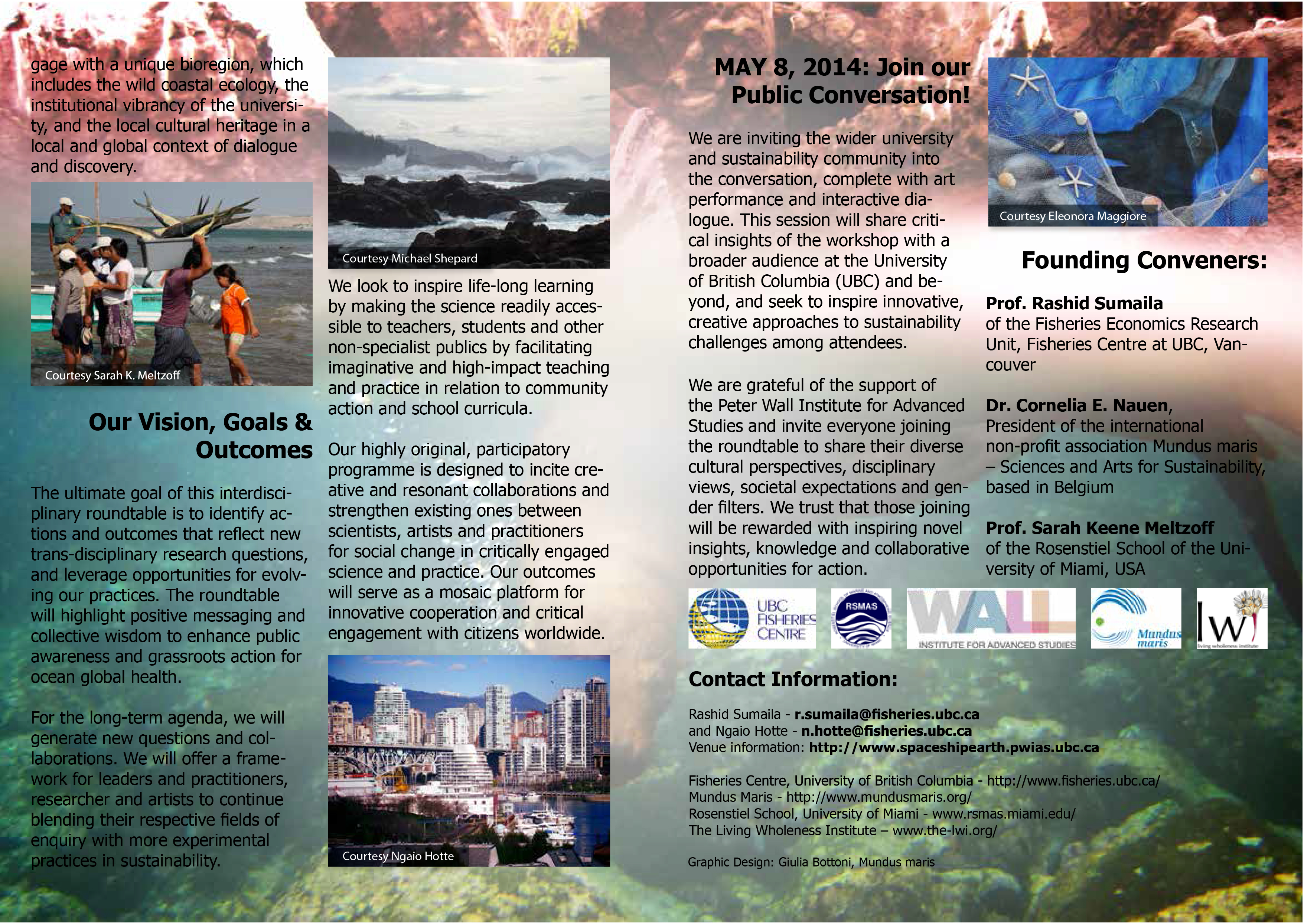
The roundtable is convened by Prof. Rashid Sumaila, Director of the Fisheries Centre at UBC, Vancouver; Dr. Cornelia E. Nauen, President of the international non-profit association Mundus maris – Sciences and Arts for Sustainability, Belgium; and Associate Prof. Sarah Keene Meltzoff of the Rosenstiel School of the University of Miami.
Click here for the specific website of the Roundtable hosted by PWIAS.

